13 Side Effects Of Papaya
Be on your guard as you reach out for this fruit and avoid its adverse effects.

Image: Shutterstock
While papaya is praised for its numerous health benefits, it is important to be aware of its potential side effects that might make you reconsider consuming it in excess. Golden yellow papayas are a healthy source of dietary fiber. They are low in calories and fat, and if you consume medium-sized papaya, you will receive 300% of the daily recommended vitamin C intake. They are said to alleviate menstrual irregularities and manage heartburn.
However, excessive papaya consumption can result in complications. The fruit is also not suitable for everyone. This article examines the side effects of papaya, its safety, and any potential drug interactions. Take a look below.
 Know The Flip Side: Papaya
Know The Flip Side: PapayaShort-Term Effects
Respiratory allergies, stomach issues, skin rashes, Diarrhea, constipation, and blood clotting
Long-Term Effects
Abortion, carotenemia, and increases the risk of renal stones
Drug Interactions
May interfere with blood thinners and diabetes medication.
When To See A Doctor
If you experience abnormal severe pain, an allergic reaction, or notice bruising and bleeding, visit a physician.
In This Article
Top 13 Side Effects Of Papaya
1. May Cause Abortion

Raw papaya has been used as a natural way to terminate unwanted pregnancies. Rat studies show that consuming unripe or semi-ripe papayas could be unsafe during pregnancy (1).
While ripe papayas are considered a safer option, there are chances of raw ones triggering uterine contractions due to the presence of latex. A 2002 study published in the British Journal of Nutrition examined a common belief believed in part of Asia that papaya consumption is unsafe during pregnancy. Researchers evaluated the effects of ripe papaya juice and crude papaya latex on pregnant animals. The study found that crude papaya latex triggered strong uterine contractions similar to those caused by oxytocin and prostaglandins, which could pose a risk of pregnancy complications. The study concluded that while ripe papaya appears safe during pregnancy, unripe or semi-ripe papaya, containing high amounts of latex, may be unsafe. Further research is needed to confirm the risks in humans (1).
This, in turn, could cause an abortion, miscarriage (in high doses during pregnancy), premature labor, abnormalities in the infant, and stillbirth. Papain, the enzyme present in the leaves of papaya, functions akin to oxytocin and prostaglandin (2).
These two hormones are known to induce labor and enhance contractions (2).
Pregnant women may also experience hemorrhagic placentai A condition in which maternal vessels tear away from the placenta and lead to bleeding between the uterine wall and placental membrane. s (3). Hence, avoid consuming raw papaya to safeguard yourself and your baby. It is always best to consult your doctor before making any dietary changes during pregnancy.
 Trivia
Trivia2. Can Cause Carotenemia
If consumed in high quantities, the beta-carotene in papaya may cause discoloration of the skin, medically known as carotenemia
(4). Some anecdotal evidence also states other symptoms, like the yellowing of the eye whites, soles, and palms, similar to the symptoms of jaundice.
3. May Cause Respiratory Allergies

Papain, the enzyme present in papaya, is a powerful allergen. Excessive consumption of papaya may, therefore, trigger various respiratory disorders, such as (5):
- Obstructed breathing
- Wheezing
- Continuous congestion of the nasal passages/chest tightness
- Asthma
If you have respiratory disorders, such as asthma or any allergic conditions, please exercise caution while using papaya.
At times, the pollen from the flowers might stick onto the skin of the papaya.
If you are allergic, make sure you wear gloves while cleaning papaya. Discard the peel and then remove your gloves. You should also cover your nose and mouth with a towel to avoid allergic reactions.
Other allergic reactions to papaya, though rare, include the following (6):
- Itching and burning of the lips, mouth, ears, and throat
- Swelling of the tongue
- Watery eyes
- Swelling of the face
- Rashes on the floor of the mouth and tongue
These allergies are a part of oral allergy syndrome, a condition common with certain fruits, including papayas.
Some believe papayas may also cause dizziness, headaches, and difficulty in swallowing in certain individuals.
4. May Increase Risk Of Renal Stones
A small papaya fruit (157 grams) is known to have 96 milligrams of vitamin C (7).
Some studies show that a high intake of vitamin C (in the form of supplements) can increase kidney stone risk in men (8). However, there is no research stating that excess intake of papayas may cause the same.
Though vitamin C is a powerful antioxidant and is known to pep up your immunity and potentially safeguard you from cancer, hypertension, blood vessel disorders, and premature aging, its role in stone formation (especially through papayas) is yet to be understood.
5. May Upset The Stomach

Eating too much papaya might upset your gastrointestinal system. This, in turn, will cause an upset stomach, characterized by stomach cramps and irritation. The high fiber content of papaya can cause unrest in the digestive system. The latex of the fruit can also be the culprit (9).
Anecdotal evidence suggests that excess papaya intake may also cause abdominal cramps, bloating, flatulence, and nausea. The fruit may also leave you with an undesirable queasiness. More research is needed to establish these factors. You can avoid these side effects by consuming papaya in moderation. It is also a good idea to pair papaya with other low-fiber foods to help reduce the strain on your digestive system.
6. May Not Be Safe During Breastfeeding
Women in Asia are advised to include salads packed with green papaya to improve the flow of breast milk. However, there is a contradictory version as well.
In certain other parts of the world, women who are lactating are advised against including papaya, ripe as well as unripe, in their diet.
There is no data on the safety and efficacy of papaya in breastfeeding mothers or infants (10). Some believe that the enzymes present in the fruit might have an adverse effect on the infant. Hence, check with your doctor before using papaya.
7. May Interact With Blood-Thinning Medications
Studies have proven that the latex in papaya can have the potential to escalate blood-thinning effects. A 2015 study on the latex of unripe Carica papaya fruits (CPUFL) published in the International Journal of Basic & Clinical Pharmacology investigated its anticoagulant and antiplatelet properties using in vitro and in vivo models. Researchers found that CPUFL contains saponins, tannins, glycosides, terpenoids, flavonoids, and alkaloids that may contribute to its effects. The study revealed that CPUFL significantly increased prothrombin time (PT), activated partial thromboplastin time (aPTT), and clotting time, indicating its ability to slow blood clot formation. Additionally, CPUFL treatment in rabbits prolonged bleeding time in a dose-dependent manner, showing effects comparable to heparin and aspirin (11). Hence, if you are on any blood-thinning medications or anticoagulantsi A group of medications or chemical substances that prevent or decrease the ability of blood to clot. , such as aspirin, check with your doctor to shield yourself from unwanted harsh effects.
If you have a surgery due in a few weeks, avoid this fruit due to its anticoagulant nature.
According to various researches conducted on papaya, people affected by blood clotting conditions, such as hemophiliai A rare inherited bleeding disorder in which the blood does not properly clot because of insufficient blood-clotting proteins. and thrombosisi A serious condition in which blood clots block veins and arteries causing inflammation, chest pain, and numbness. , should also refrain from consuming this fiber delight. Check with your physician in case of any of the aforementioned conditions.
8. May Cause Skin Rashes

The rich presence of papain enzyme and antioxidants make papaya a sought after ingredient in anti-aging creams. However, not every skin type reacts to the topical application in a positive way.
Certain people may experience allergies to papaya that may involve rashes (12). The rashes could be attributed to the latex allergy caused by papaya (13).
Other reported symptoms include itchy and dry skin. A few women have reported skin irritation including rashes after using papaya-infused moisturizing and/or massage creams.
9. Can Be Toxic When Consumed In High Amounts
The leaves, seeds, and flesh of the papaya are abundant with carpaine, the anthelmintici A group of drugs or substances that are designed to act against infections caused by parasitic worms. alkaloid. While this chemical is effective in flushing out parasitic worms from your tummy, excess intake can cause undesirable effects. Anecdotal evidence suggests that a high intake of carpaine may cause the pulse rate to fall to dangerously low levels (potentially leading to a malfunctioning of the nervous system). However, there is not much research to back this up.
In a study, 2 grams/ kg of papaya leaf extract was found to be relatively nontoxic in rats. However, further studies are needed to understand the toxicity of papaya (14).
10. May Result In A Slower Heartbeat
It is believed that people with cardiac disorders should avoid using papaya. The papain present in this golden-orange flesh fruit is thought to slow down the rate of heartbeat in a precarious way, possibly triggering serious cardiovascular conditions. However, research is limited. If you have any cardiovascular issues, do consult your doctor before consuming papaya.
11. Can Aggravate Diarrhea

Like all other fibrous fruits, papaya may also aggravate diarrhea if consumed in large amounts. The fiber may bind with the stools and worsen the condition, leaving you at the risk of dehydration. However, more research is warranted here.
12. Can Be Unsafe For Infants Below 1 Year
No data exists in this regard (10). But people advise mothers not to feed papaya to infants below the age of 1. This could be due to the presence of fiber in abundance. Excessive fiber intake has two major negative impacts:
- It could trigger loose stools.
- Without adequate water intake, it could harden the stools, leaving the baby constipated (15).
Hence, check with your pediatrician before you give your baby this fruit in any form, raw or ripe.
13. May Cause Constipation
While papaya is known to be an effective natural remedy for constipation, excessive intake may affect your body negatively. Excess fiber intake can lead to constipation (15).
You should drink at least 10 to 12 glasses of water a day to keep constipation at bay. When your fiber intake is high, the quantity of water should also increase. Otherwise, the stools can harden, leaving you constipated.
More direct research on papaya is needed to understand how it may lead to constipation.
Eating moderate amounts of ripe papaya is generally safe. However, consuming too much can lead to digestive issues, diarrhea, or an upset stomach because of its high fiber and latex content. Pregnant individuals should also steer clear of unripe papaya, as it contains papain, which may cause complications.
If you have a papaya allergy or sensitivity, consider trying other digestive-friendly fruits like bananas, mangoes, or cantaloupes that provide similar nutrients without the associated risks.
If you experience ongoing bloating, abdominal pain, nausea, or any allergic reactions after eating papaya, it’s best to consult a doctor to see if it’s the cause and to discuss safe dietary alternatives.
Key Takeaways
- Papaya can discolor your skin.
- Raw papaya can cause miscarriage and premature labor in pregnant women, so they should avoid it.
- Papayas are rich in vitamin C, and consuming them in excessive quantities may form kidney stones in men.
- Some individuals may experience skin rashes due to latex allergy, another common side effect of papaya.
Infographic- Serious Side Effects Of Papaya
Papaya is one of the most commonly consumed fruits worldwide as it is low in calories and fats and has many health benefits. But overconsumption of papaya can have many side effects, as discussed in the article, but to know about the most severe side effects of papaya, check out the infographic below. Illustration: StyleCraze Design Team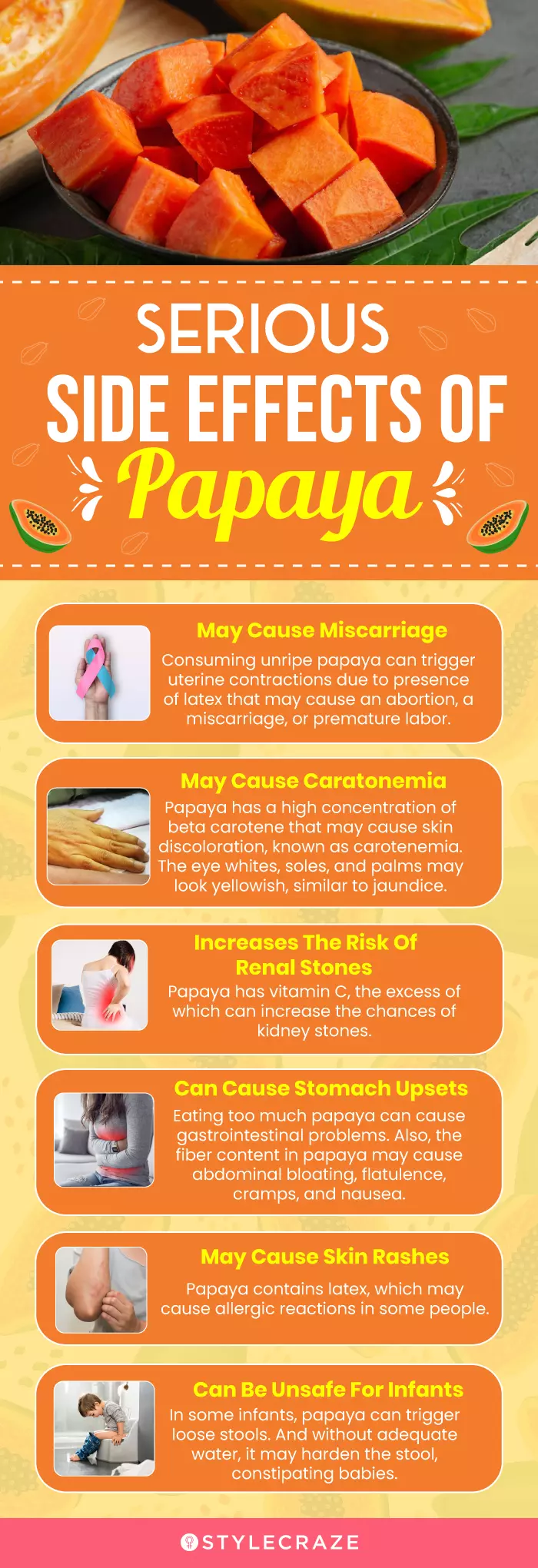
 Quick Tip
Quick TipPapaya is rich in many beneficial nutrients that can positively affect overall health. However, although papaya benefits us in numerous ways, one must also be aware of its potential side effects to avoid any side effects. For instance, raw papaya may cause miscarriage. In addition, the beta-carotene in papaya may trigger carotenemia (skin discoloration). It may also cause respiratory diseases, renal stones, indigestion, stomach upset, skin rashes, vomiting, diarrhea, and constipation. It also may interact with blood-thinning medications and may not be safe during breastfeeding. Hence, caution is highly advised. Moderate consumption is always better.
Frequently Asked Questions
Is it OK to eat papaya every day?
Brooke Pieke, MS, a nutrition educator and clinical researcher, says, “Papayas are excellent sources of vitamin A, magnesium, copper, and fiber. However, papaya also contains enzymes called chitanases that can have a laxative effect. Papanin is another enzyme that can cause minor upset stomach. Having one a day is still a great way to regulate digestion, reduce inflammation, and boost immunity. Everything in moderation is key!”
When should I stop eating papaya?
Pieke says, “Feeling the uncomfortable GI symptoms of ingesting too much papaya is highly individualized as everyone’s body composition is different. A general rule of thumb is to stick to one serving of papaya a day (whether in juice or solid form) and assess from there.”
How much papaya can you eat in a day?
There is no exact information available on the right dosage of papaya. However, some believe that eating 150 to 200 grams of the fruit should be safe. If you have a health condition, consult your doctor for the ideal dosage for you.
Does papaya make you gassy?
Yes, it may. Excess intake could lead to bloating and the formation of stomach gas. However, there is no research to support this.
How long should I wait to drink water after eating papaya?
It is not advised to drink water right away after eating papaya because it can hinder digestion and result in additional health problems. Furthermore, papaya is anyway juicy and contains a lot of water already. Hence, it’s best to wait for 20 to 30 minutes before consuming your first glass of water after eating papaya.
What happens when you eat papaya on an empty stomach?
Eating papaya on an empty stomach (in the morning) removes toxins from the body and encourages a smoother bowel movement. Hence, it is recommended.
Is papaya high in sugar?
According to the USDA, a cup of fresh papaya has roughly 11 grams (g) of sugar (16). The glycemic index of papayas is moderate (58) (17). Hence, when consumed in moderation, papaya can be safe for those with diabetes.
What are the side effects of papaya leaf juice?
While papaya leaf juice has various health benefits when consumed in moderation, it may cause nausea, stomach upset and even trigger an allergic reaction in some people. Hence, it is advisable to consult a doctor before consuming it.
Illustration: Side Effects Of Papaya
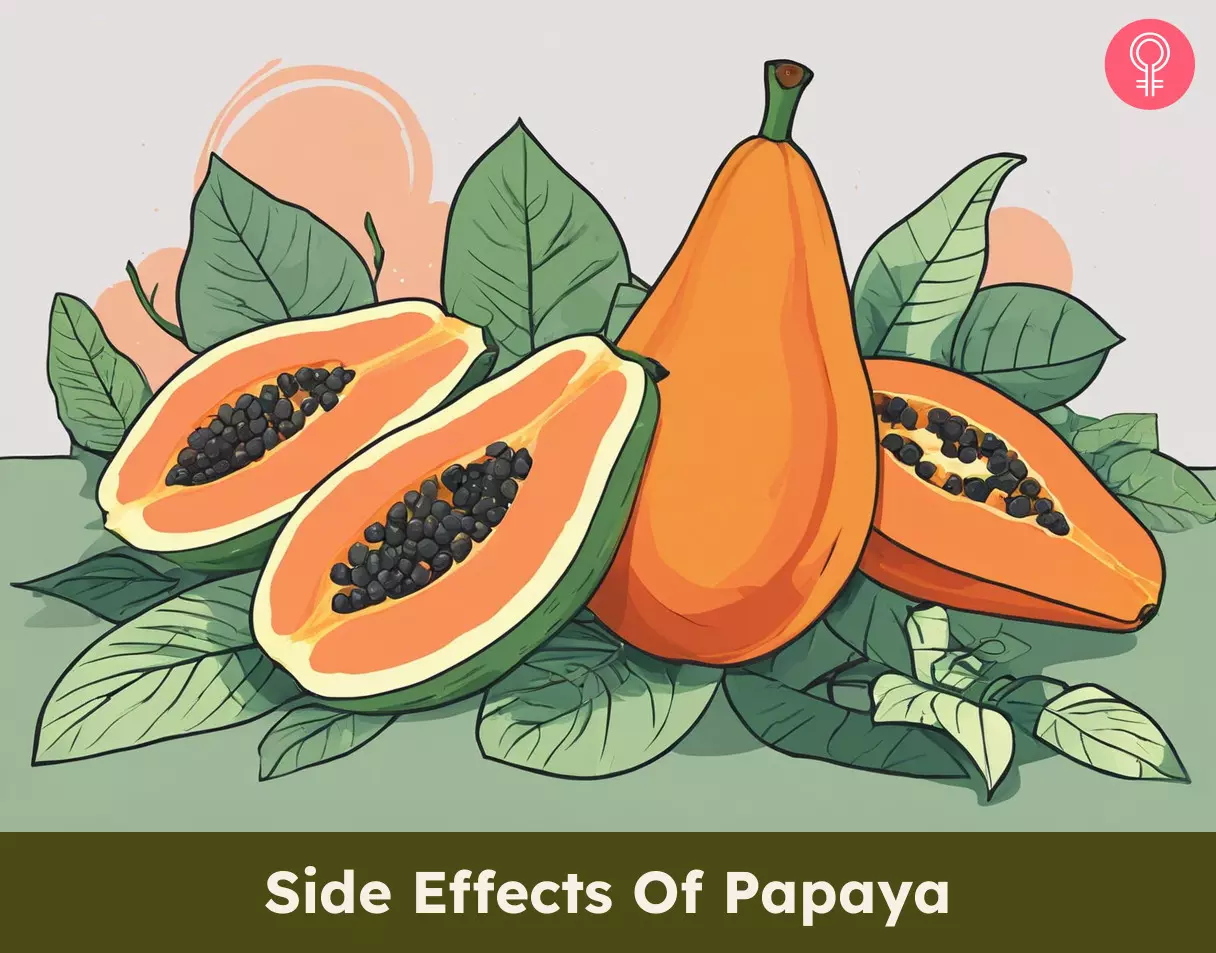
Image: Stable Diffusion/StyleCraze Design Team
Explore the potential side effects of excessive papaya consumption with this informative video. Click on it to learn how to enjoy this tropical fruit in moderation for optimal health and well-being.
References
Articles on StyleCraze are backed by verified information from peer-reviewed and academic research papers, reputed organizations, research institutions, and medical associations to ensure accuracy and relevance. Read our editorial policy to learn more.
- Papaya (Carica papaya) consumption is unsafe in pregnancy: fact or fable? Scientific evaluation of a common belief in some parts of Asia using a rat model, The British Journal of Nutrition, US National Library of Medicine, National Institutes of Health.
https://pubmed.ncbi.nlm.nih.gov/12144723/ - Mechanisms of the Oxytocic Activity of Papaya Proteinases, Pharmaceutical Biology.
https://www.tandfonline.com/doi/pdf/10.1080/13880200490902608 - Review on nutritional and medicinal values of “Carica papaya”, Journal of Pharmacognosy and Phytochemistry.
https://www.phytojournal.com/archives/2016/vol5issue4/PartD/5-4-20-746.pdf - Carotenemia Associated With Papaya Ingestion, California Medicine, National Institutes of Health.
https://www.ncbi.nlm.nih.gov/pmc/articles/PMC1503272/pdf/califmed00028-0048.pdf - Papain Induced Occupational Asthma with Kiwi and Fig Allergy, Allergy, Asthma, and Immunology Research, US National Library of Medicine, National Institutes of Health.
https://www.ncbi.nlm.nih.gov/pmc/articles/PMC4713881/ - Oral Allergy Syndrome: An Update for Stomatologists, Journal of Allergy, US National Library of Medicine, National Institutes of Health.
https://www.ncbi.nlm.nih.gov/pmc/articles/PMC4655061/ - Papayas, raw, U.S. Department of Agriculture.
https://fdc.nal.usda.gov/fdc-app.html#/food-details/169926/nutrients - Ascorbic Acid Supplements and Kidney Stone Incidence Among Men: A Prospective Study, JAMA Internal Medicine.
https://jamanetwork.com/journals/jamainternalmedicine/fullarticle/1568519 - Traditional and Medicinal Uses of Carica papaya, Journal of Medicinal Plants Studies.
https://www.plantsjournal.com/vol1Issue1/Issue_jan_2013/2.pdf - Papaya, Drugs and Lactation Database, National Center for Biotechnology Information.
https://www.ncbi.nlm.nih.gov/books/NBK501881/ - Anticoagulant and antiplatelet properties of the latex of unripe fruits of Carica papaya L. (Caricaceae), ResearchGate.
https://www.researchgate.net/publication/285903789_Anticoagulant_and_antiplatelet_properties_of_the_latex_of_unripe_fruits_of_Carica_papaya_L_Caricaceae - Papaya, US National Library of Medicine, National Institutes of Health.
https://pubmed.ncbi.nlm.nih.gov/30000941/ - Preventing Allergic Reactions to Natural Rubber Latex in the Workplace, Centers for Disease Control and Prevention.
https://www.cdc.gov/niosh/docs/97-135/pdfs/97-135.pdf - Repeated Dose 28-Days Oral Toxicity Study of Carica papaya L. Leaf Extract in Sprague Dawley Rats, Molecules, Open Access Journals.
https://citeseerx.ist.psu.edu/viewdoc/download?doi=10.1.1.396.4240&rep=rep1&type=pdf - Stopping or reducing dietary fiber intake reduces constipation and its associated symptoms, World Journal of Gastroenterology, US National Library of Medicine, National Institutes of Health.
https://www.ncbi.nlm.nih.gov/pmc/articles/PMC3435786/ - Papayas, raw
https://fdc.nal.usda.gov/fdc-app.html#/food-details/169926/nutrients - Glycemic index of common Malaysian fruits
https://pubmed.ncbi.nlm.nih.gov/18364324/
Read full bio of Merlin Annie Raj
Read full bio of Ravi Teja Tadimalla
Read full bio of Arshiya Syeda
Read full bio of Sindhu Koganti





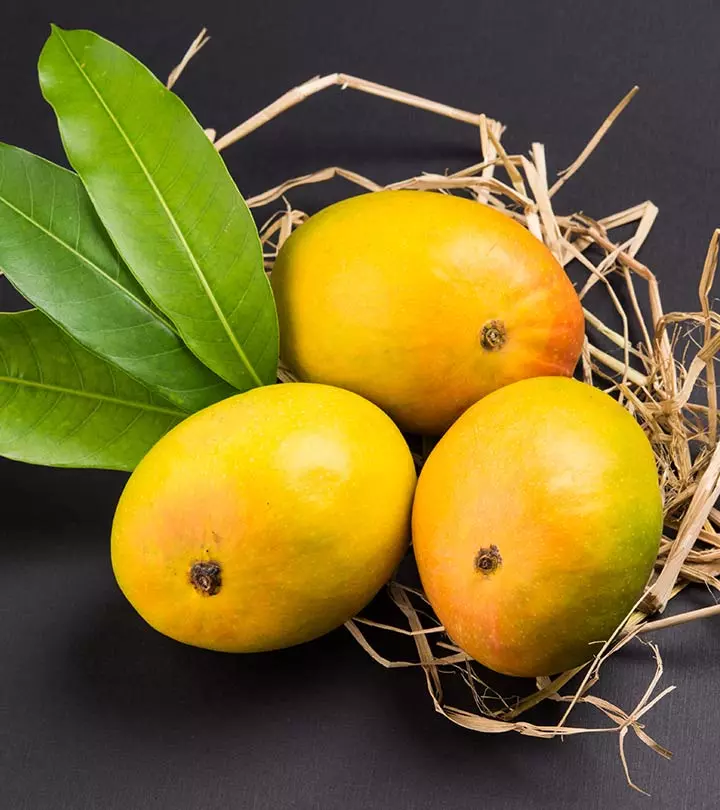












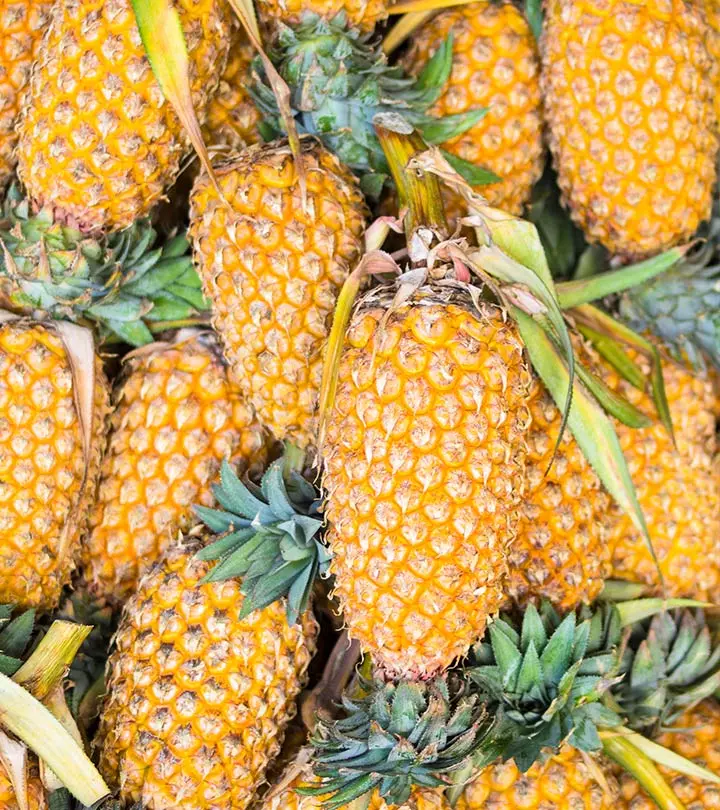





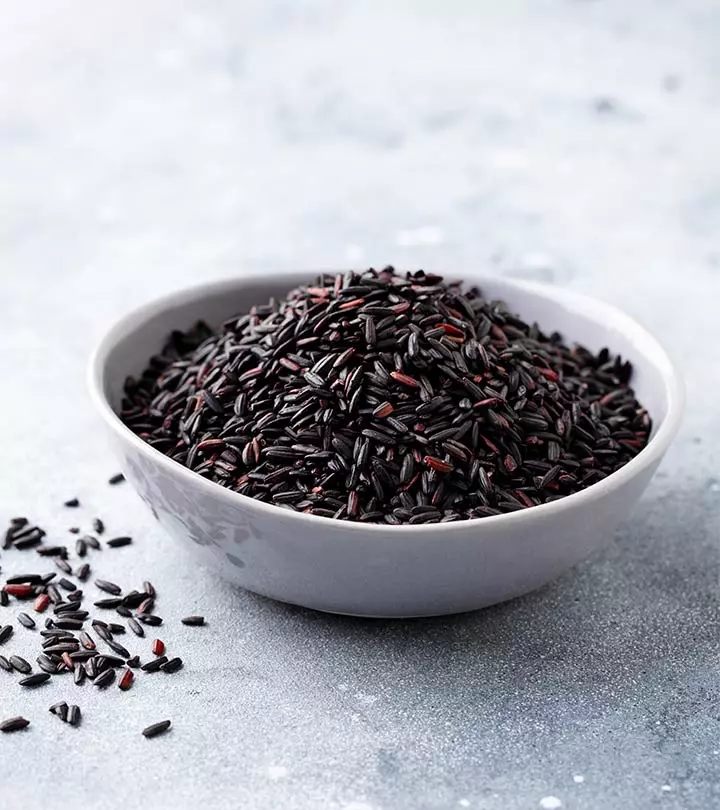

Community Experiences
Join the conversation and become a part of our empowering community! Share your stories, experiences, and insights to connect with other beauty, lifestyle, and health enthusiasts.